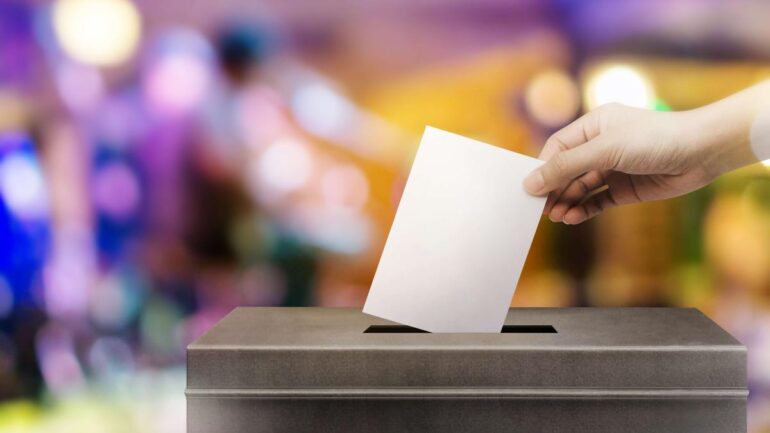TL;DR:
- The use of AI-generated content in political campaigns has the potential to transform elections.
- Advances in digital technology allow for faster and more impactful political messaging.
- AI enables politicians to respond instantly to campaign developments without extensive resources.
- Precise audience targeting through AI helps campaigns reach undecided voters and shape their decisions.
- AI democratizes the spread of disinformation, allowing individuals to promote preferred candidates.
- False information can be strategically used to sway voters and influence election outcomes.
- AI serves as a powerful tool for engagement and persuasion in political campaigns.
Main AI News:
The recent utilization of AI-generated videos by the Republican National Committee (RNC) to critique Joe Biden exemplifies the potential transformation that AI holds for our upcoming elections. The evolution of digital technology has provided political entities with new and expeditious tools for conveying their messages, consequently revolutionizing how candidates, voters, politicians, and reporters perceive electoral campaigns.
This shift entails a departure from minor image alterations or manipulations, such as photoshopping, to an era where wholesale digital creation and dissemination will prevail. With the proliferation of user-friendly and cost-effective templates, we find ourselves on the cusp of a political landscape akin to the Wild West, inundated with campaign assertions and counter-claims while grappling with the challenge of differentiating between authentic and counterfeit materials and the uncertainty surrounding the impact of these appeals on elections.
Instantaneous responses
Generative AI empowers politicians to respond instantaneously to campaign developments. In the case of the RNC, they swiftly released a video following Biden’s announcement of reelection without the need for extensive shooting, editing, or review. Instead, they simply tasked the AI tool to compile a video outlining a dystopian future for the United States under Biden’s potential second term. As we move forward, response times may diminish to a matter of minutes rather than hours or days. AI has the capacity to scour the vast expanse of the internet, strategize, and concoct hard-hitting appeals.
These appeals can take the form of speeches, press releases, images, jokes, or videos, all tailored to extol the virtues of one candidate over another. By providing an economical means of generating instantaneous responses, AI eliminates the reliance on highly-paid consultants or skilled videographers.
Precision in targeting messages
One of AI’s crucial contributions to political campaigns lies in its ability to facilitate precise audience targeting. Candidates aim to avoid wasting resources on individuals who already support or oppose their cause, focusing instead on the small fraction of swing voters who hold power to determine the final outcome or on suppressing the turnout of supporters of rival campaigns.
Given the heightened levels of political polarization, only a minute percentage of the electorate remains undecided at the presidential level. According to a recent survey conducted by Emerson College in April 2023, a mere six percent of voters fall into this category, with 43 percent backing Biden, 41 percent favoring Trump, and 10 percent supporting alternative candidates.
The closely contested nature of general elections highlights the potential for AI to assist candidates in their endeavors. By utilizing microdata obtained from commercial data brokers, who possess detailed insights into individuals’ reading habits, viewing preferences, purchasing behavior, and political inclinations, campaigners can fine-tune their targeting strategies.
This enables them to reach out to those who are yet to make up their minds and deliver tailor-made messages that aid them in arriving at their final decisions. Through real-time analysis of this data, AI empowers campaigners to launch appeals aimed at specific voting blocs, employing narratives that nudge them towards specific policies and partisan viewpoints.
Democratization of disinformation
The advent of AI is expected to democratize the dissemination of disinformation, offering sophisticated tools to average individuals interested in promoting their preferred candidates. No longer does one require coding expertise or mastery of video editing to generate persuasive text, images, videos, or programs.
Working for a troll farm is not a prerequisite for wreaking havoc upon political adversaries. Advanced technologies have rendered it accessible for anyone to propagate desired messages. In this regard, political content creation has become attainable for all, thereby enabling individuals to influence voters and the media.
Conlcusion:
The integration of AI technologies in political campaigns signifies a significant shift in the market landscape. These advancements enable faster and more targeted political messaging, empowering politicians to respond instantaneously to developments. The precise audience targeting facilitated by AI has the potential to reshape the dynamics of elections as campaigns focus their efforts on swing voters and undecided individuals. Moreover, the democratization of disinformation through AI tools has introduced new challenges, with individuals capable of influencing voters and media with ease.
The market can expect a surge in demand for AI-driven campaign tools and services as political entities seek to leverage these technologies to gain a competitive edge. Furthermore, businesses operating within the broader political ecosystem, such as data brokers and content creators, may witness increased opportunities for collaboration and growth. As the market adapts to this transformative era, understanding the implications and ramifications of AI in political campaigns will be crucial for success.

